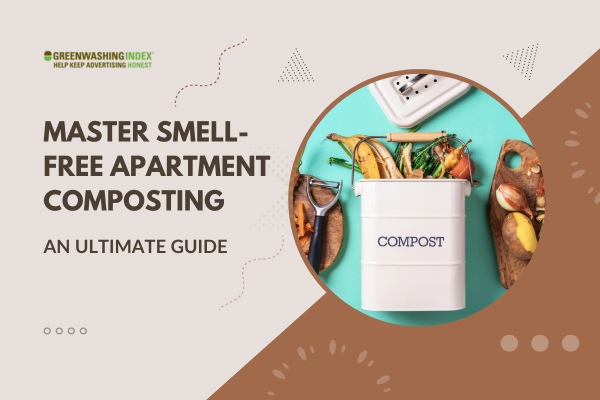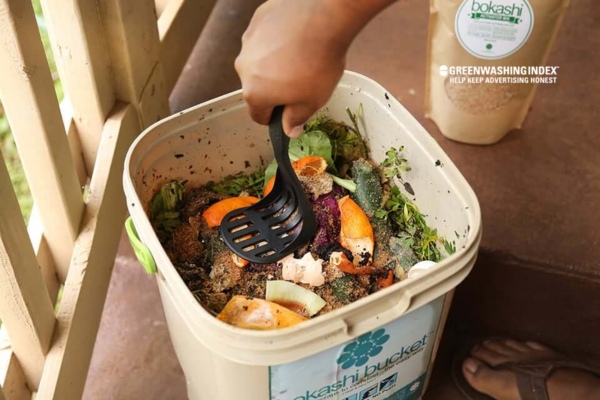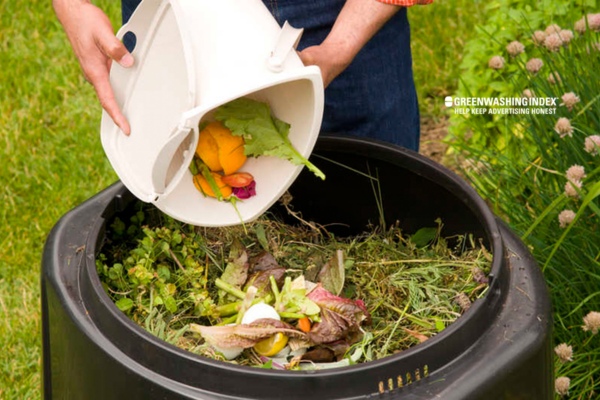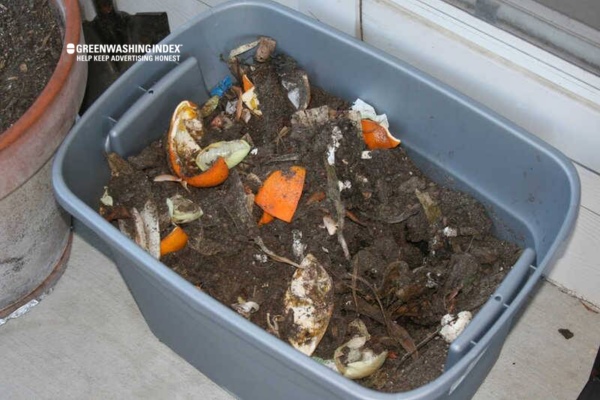

Living in an apartment shouldn’t hold you back from doing your part in sustainable waste management. You might be wondering, can composting work in a small environment? Is it feasible to create nutrient-rich soil while avoiding the pungent smells often associated with decomposition? Welcome to smell-free apartment composting – a game-changer for eco-conscious urban dwellers.
Yes, you heard it right! Apartment composting without the smelly problem isn’t only possible but quite achievable. All you need is to know what goes into and what stays out of your compost bin, maintain the right balance, and choose your compost set-up wisely. Breathe easy with green living as we delve into odor-free compost tips rest assured you’ll reap rich rewards.
Here’s what’s in store for you:
Recognizing the significance of composting in apartments promotes sustainable waste management, fostering environmental responsibility and contributing to the reduction of landfill waste.
In this day and age, observing sustainable living practices is more than just a fad – it has become a necessity. You might wonder – why composting is non-negotiable? On a grand scale, let me explain.
Just by simply adopting odor-free composting in our apartments, we’re making a significant contribution to improving environmental health.
If you’re living in an apartment and thinking how much difference can I make? You’d be surprised! Here are a few ways how:
As an apartment dweller, it might seem impossible to engage in composting due to the limited space and of course, the dreaded smell. But with a few tips and tricks, smell-free apartment composting can become a surprisingly hassle-free aspect of your daily life.

Let’s dive right into understanding just what goes in and what stays out of your compost bin, followed by choosing the right setup for your apartment.
The first step towards successful apartment composting is understanding which waste materials you can compost, and which ones you need to exclude. The balance lies in ensuring that the “greens” (high nitrogen) and “browns” (high carbon) are appropriately layered in the compost bin.
Can Compost:
Cannot Compost:
Remember, items that take longer to decompose can create a foul smell in your home; thus, excluding them leads us one step closer to odor-free composting.
Now that we know what goes into our bins, let’s talk about where it all will be happening – The Compost Setup.
Several options cater specifically to indoor settings like apartments; here’s looking at some:
1. Indoor Bins: Compact yet efficient, indoor bins are an excellent choice for those keen on odorless decomposition. You can either buy ready-made containers with added features like charcoal filters (to combat smell) or make one yourself using simple materials available at home.
2. Vermiculture Bins: If a little wriggle doesn’t disgust you, introducing worms (red wigglers, to be specific) to your compost setup could be the fast-track solution to apartment composting. The worms feast on the organic waste and poop out nutrient-rich compost – all while keeping smell and pests at bay.
Beginning the journey of apartment composting can be quite daunting, particularly when you’re concerned about potential odor problems. But rest assured, smell-free apartment composting is achievable. Here are two critical steps to get you started on this sustainable path without getting a noseful of foul odors.
Our first stop on this eco-friendly journey is understanding how to layer your compost bin correctly. This step guarantees that the decomposition process happens efficiently and without causing any unpleasant smells.
The golden ratio here would be 1:2 – one part green for every two parts brown by volume not weight! It’s an art really because the actual ratio fluctuates as different materials have varying amounts of carbon and nitrogen.
Layering it Right
Start with a layer of browns at the bottom; then add a layer of greens followed by a thin covering of soil or completed compost rich in microbes that speed up the decomposition process – acting like an activator for your pile!
Follow this up with another round of browns then greens until your bin is about three-quarters full. Always end with a layer of browns which acts as a bio-filter and reduces potential odors.
After nailing down the layering, we need to understand the parameters that influence composting. These factors ensure the pile decomposes without creating a stinky mess.
Navigating the secrets behind a smell-free composting routine within an apartment can seem like a daunting task at first, but don’t worry! I’m here to reveal just that.

If you’re aiming for odor-free composting, activated charcoal filters could be your best ally. These filters might look unassuming, but they’re packed with power when it comes to absorbing those stinky odors from your compost bin. Let me explain how.
Activated charcoal, or as some people call it ‘activated carbon,’ isn’t your everyday barbecue charcoal. It’s a specifically treated form of carbon known for its incredibly porous surface. This structure results in superior absorbency.
Implementing this magical component into our smell-free apartment composting mission will significantly reduce any offending smells that might have deterred us before.
Yes! You got it right; our little wriggly friends – worms! Particularly Red Wigglers (Eisenia fetida), who are phenomenal recyclers and crucial players in the arena of odor-free apartment composting. Let’s see why:
Investing in these nature’s workaholics would pay you rewards by transforming your kitchen waste into precious garden gold- all while ensuring Smell-free Apartment composting!
Embracing these two secret ingredients – Activated charcoal filters and Red Wigglers, the challenges of keeping an odor-controlled indoor compost bin become negligible! So folks, let’s add a bit more green to our lives with eco-friendly apartment living.
Regardless of the method used, composting in your apartment can present various challenges. Here are solutions to some common issues you might face.

Limited outdoor space is a common problem in apartment composting. But don’t let that deter you as indoor composting is very much achievable and doesn’t have to be inconvenient.
It’s all about finding solutions that suit your living arrangement, whether it be tight corridors or shared living spaces.
Honestly, smell-free apartment composting isn’t devoid of its share of hiccups. Unpleasant smells and pesky pests can sometimes play spoilers.
Here’s how you can tackle these issues:
Always remember: healthy compost shouldn’t stink but possess an earthy aroma!
Pests, especially fruit flies, can be a headache when apartment composting. However, there are tried and true methods for keeping these unwelcome guests at bay:
No, not at all. With the right balance of greens and browns, proper aeration, and moisture balance, composting can be a relatively smell-free process. Smell-free apartment composting is achievable with some careful steps.
If your apartment compost bin starts to emit odors, it may be time to troubleshoot. It could indicate an imbalance between greens and browns or insufficient aeration. Try stirring the bin more often or adding more brown materials like dried leaves or shredded newspaper.
While many kitchen scraps are great for your eco-friendly waste management system, some aren’t suitable for apartment composting. Meat scraps, dairy products, and any foods cooked in oil should be avoided as they have tendencies to attract pests and produce smelly odors.
Finished compost in an apartment setting can be used in different ways even without a backyard garden. You can use it for indoor plants or donate it to community gardens. Another idea is selling it – many local gardeners will appreciate high-quality homemade compost!
Lastly, I encourage you to take the plunge and begin your taste of sustainable living in your apartment through composting. Doubtlessly, it will require a bit of effort and commitment, but trust me, the long-term benefits to our planet are far too significant to overlook.
By adopting odor-free composting techniques, we can all do our part – even in small ways – towards an eco-friendly lifestyle. Additionally, apartment composting will provide you with rich organic inputs for your indoor plants or community garden, creating a circle of life right within the comfort of your apartment.
Key Takeaway Points

Don't let aphids, slugs, and caterpillars ruin another plant. Take back control with simple, natural methods that actually work.